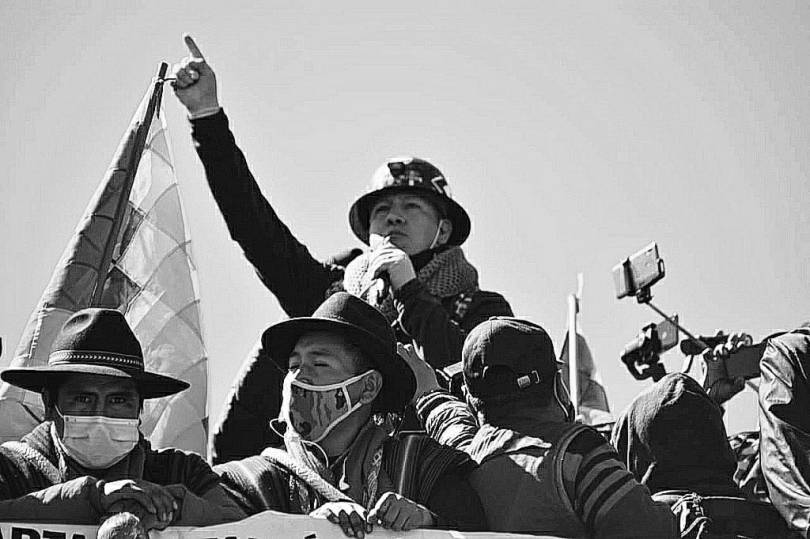The death of Bolivian mining leader Orlando Gutiérrez Luna remained a matter of dispute for a full year after his untimely death in October 2020, shortly after the electoral victory of Luis Arce and David Choquehuanca. While estranged from the inner circle of Evo Morales, Gutiérrez headed the pivotal miner’s union, Federación Sindical de Trabajadores Mineros de Bolivia (FSTMB), and campaigned hard for Arce and Choquehuanca. He also feared for his life and warned his wife not to accompany him on his final journey to La Paz. From such murky circumstances seems to have sprung the notion that he may have been the victim of foul play. His widow, Karen Calle, was the leading proponent of suspicions of an attack.
Gutiérrez’s death became a matter of public concern, both in Bolivia and for the international left, after a denunciation issued on social media by the FSTMB on October 23, 2020. (Detailed in previous coverage here) The statement, which has since been disavowed by the FSTMB leadership, spoke of “hired killers” and “street thugs” who “assassinated” Gutiérrez. In the wake of some three dozen deaths in 2019, this claim set off concern and more than a few sympathetic denunciations far beyond Bolivia’s borders.
Within Bolivia, however, conflicting evidence was easier to hear. Three friends of the deceased labor leader reported that he fell on stairs in his home when they were with him, causing his fatal injuries. This explanation matched that given by the clinic that cared for him. Karen Calle, too, heard Gutiérrez himself offer this explanation to the medics who cared for him. but felt sure her husband was concealing the real cause out of fear. Bolivian social movement, union, and political leaders, who initially reacted with shock and anger, shifted from calling for “justice” for Orlando Gutiérrez to “clarification” of the circumstances of his death.
And still, that clarification was slow to arrive.
In March 2021, prosecutors declined to treat the matter as a homicide. Their statement said, “While there is testimony from witnesses, there is no place or date of the events, nor an original cause of his death.” However, they did not attempt to clarify the cause of death.
Then in August 2021, a detailed investigation was restarted.
While a final report is still pending, Bolivian prosecutors have now told the independent news network Erbol the results, which confirm that writing on the wall since late 2020: Gutiérrez died of an accidental fall. Other conclusions:
- Gutiérrez fell in a private residence after an evening out drinking.
- Both criminal investigation and spatial reconstructions found the fall was accidental.
- An autopsy found that he died of lesions to his upper nerve centers, cerebral hemorrhage, and cranioencephal trauma.
- Gutiérrez also suffered from post-COVID pulmonary fibrosis and caridomegaly.
- The Departmental Health Service audited Gutiérrez’s care during a prolonged clinic.
Hopefully the conclusions can put to rest the concerns of a grieving and fearful widow, concerned members of Bolivian movements, and activists worldwide who feared—for healthy reasons, but without sound evidence—that Gutiérrez was the victim of unknown agents of the Bolivian right wing.













